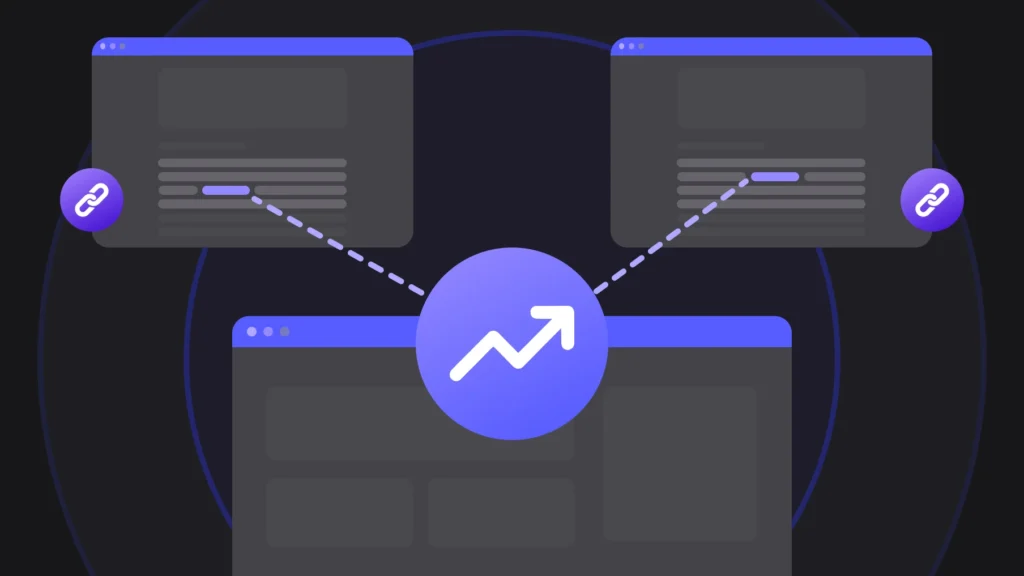Many people focus on what happens within their own websites, there’s an equally important aspect that often gets overlooked—Off-page SEO.
So, what is Off-page SEO?
Off-page SEO is part of your main SEO efforts.
It encompasses all the strategies and techniques you implement outside your website to improve its authority and visibility in search engines.
In this guide, you'll discover how various tactics can help enhance your site's credibility and attract more organic traffic.
Let’s explore how to effectively improve Off-page SEO and make your site shine brighter than ever before!
What is Off-page SEO?
Off-page SEO refers to all the activities that occur outside your website, aimed at improving its ranking in search engine results. Unlike on-page SEO, which focuses on optimizing content and structure within your site, off-page techniques involve building a website's credibility through external factors.
The primary goal of off-page SEO is to signal trustworthiness to search engines like Google. This is achieved through various methods such as acquiring quality backlinks from reputable sites and engaging with audiences across social media platforms.
Another vital aspect involves online reputation management. Ensuring positive mentions and reviews can significantly impact how your site is perceived.
In essence, effective off-page strategies enhance overall visibility while fostering relationships within the digital community.
Off-page SEO vs on-page SEO
Off-page SEO and on-page SEO serve distinct but complementary roles in a successful digital marketing strategy.
On-page SEO focuses on elements within your website, such as content quality, keyword usage, and HTML tags. It’s all about optimizing your site to make it more appealing to search engines.
In contrast, off-page SEO extends beyond your own domain. This involves building backlinks, engaging with social media platforms, and managing online reputation. It's the process of enhancing how others see you online.
Both strategies are essential for improving visibility in search results. While on-page techniques ensure that visitors find valuable information once they land on your page, off-page tactics create pathways leading them there in the first place.
Balancing both is key to achieving robust organic traffic and higher rankings. They work together like two sides of a coin—each critical for overall success in the competitive digital landscape.
Types of Off-page SEO
Off-page SEO encompasses various strategies that enhance your website's visibility beyond its pages. Each type plays a crucial role in boosting your search engine rankings.
Link building is one of the most popular off-page techniques. Acquiring backlinks from authoritative sites signals to search engines that your content is valuable and trustworthy.
Social media engagement also falls under this umbrella. Sharing content on platforms like Facebook, Twitter, and Instagram helps drive traffic and increases brand awareness while fostering community interaction.
Another key element is online reputation management. Monitoring reviews and managing customer feedback can significantly impact public perception and trustworthiness.
Local SEO strategies help businesses connect with their nearby audience. Optimizing for local searches ensures you show up when potential customers are looking for services in their vicinity.
Backlink building
Backlink building is a crucial aspect of off-page SEO. It involves acquiring hyperlinks from other websites to your own. These links act as votes of confidence, signaling search engines that your content is valuable.
Quality matters more than quantity in backlinking. Focus on obtaining links from authoritative sites within your niche. This can significantly boost your credibility and visibility online.
Guest blogging is one effective strategy for generating backlinks. By writing articles for other blogs, you not only provide value but also gain exposure and a link back to your site.
Engaging with influencers or industry experts can also yield beneficial results. Their endorsement can lead to organic backlinks and improved trustworthiness.
Monitor your backlink profile regularly using tools like Ahrefs or Moz. Understanding which links are working for you helps refine future strategies and improve overall performance.
Social Media Engagement
Social media engagement plays a crucial role in off-page SEO. It's not just about posting content; it's about creating conversations. Engaging with your audience fosters community and builds trust, two essential elements for an effective online presence.
When you respond to comments or share user-generated content, it signals that your brand values its audience. This interaction can lead to increased shares and backlinks, enhancing your site's authority.
Platforms like Facebook, Twitter, and Instagram offer unique opportunities to connect. Tailoring your approach based on each platform's culture can significantly improve results.
Using hashtags wisely can broaden your reach while attracting the right users to your content. Collaborating with influencers also boosts visibility and credibility.
Regularly analyzing engagement metrics helps refine strategies over time. Understanding what resonates with your audience is key to maximizing impact on search rankings through social channels.
Online Reputation Management
Online Reputation Management (ORM) is essential for businesses today. It involves monitoring and influencing how your brand is perceived online.
A strong reputation can attract customers, while a negative one can drive them away. This makes ORM a crucial component of off-page SEO.
Effective ORM starts with regular monitoring of mentions across platforms. Tools like Google Alerts or social listening software are valuable here.
Responding to reviews, both positive and negative, shows that you care about customer feedback. Engaging with users fosters trust and builds relationships.
Creating quality content helps shape the narrative around your brand as well. Share success stories, testimonials, or case studies to showcase your strengths.
Remember, transparency matters. Address issues openly rather than hiding from criticism; doing so strengthens credibility in the long run.
Local SEO strategies
Local SEO strategies focus on optimizing your online presence for local search results. It’s essential for businesses that operate within a specific geographical area.
Start by claiming and verifying your Google My Business listing. This is crucial as it helps you appear in local searches and maps. Ensure that all information is accurate, including hours of operation, contact details, and services offered.
Encourage happy customers to leave positive reviews. These can significantly impact your rankings and attract new clients looking for trustworthy options nearby.
Another effective strategy is to include location-based keywords in your website content. Tailoring this to reflect the community you serve can enhance visibility.
Participate in local events or sponsor community activities to build rapport with residents while boosting brand awareness online through mentions and backlinks from local news outlets. Engaging with the local audience creates a loyal customer base over time.
How to improve Off-page SEO?
Improving off-page SEO requires a multi-faceted approach. Start by building high-quality backlinks from reputable websites within your industry. Focus on creating valuable and shareable content that encourages other sites to link back to you naturally. Guest blogging is another effective strategy, allowing you to showcase your expertise while acquiring links.
Engagement on social media platforms plays a crucial role as well. Share your content regularly and interact with followers. This not only helps in brand awareness but also drives traffic back to your site, which search engines notice.
For businesses looking to enhance their local presence, optimize for local SEO strategies like improving Google My Business listings and gathering reviews from satisfied customers. Positive online feedback can significantly boost credibility and visibility.
Network with influencers in your niche who might share or promote your content, expanding its reach further than just traditional marketing techniques.
Staying consistent across all these methods is key; regular monitoring of results will allow you to adapt strategies effectively over time. By taking these steps seriously, you'll see a noticeable improvement in your off-page SEO efforts and overall site performance.



